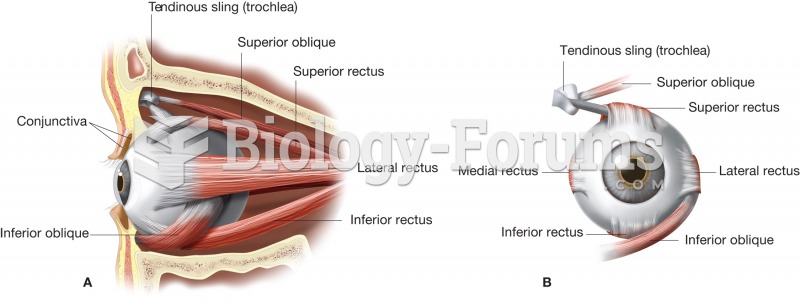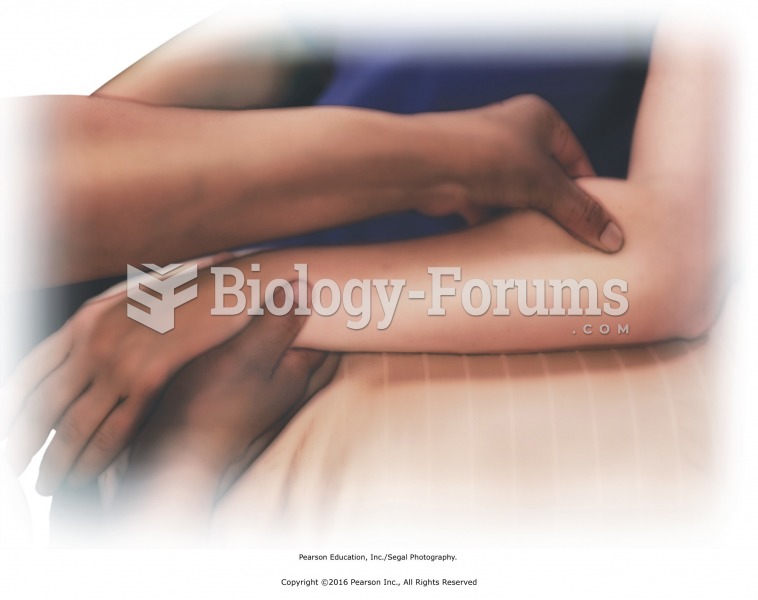|
|
|
Blood is approximately twice as thick as water because of the cells and other components found in it.
The first-known contraceptive was crocodile dung, used in Egypt in 2000 BC. Condoms were also reportedly used, made of animal bladders or intestines.
People with alcoholism are at a much greater risk of malnutrition than are other people and usually exhibit low levels of most vitamins (especially folic acid). This is because alcohol often takes the place of 50% of their daily intake of calories, with little nutritional value contained in it.
Amoebae are the simplest type of protozoans, and are characterized by a feeding and dividing trophozoite stage that moves by temporary extensions called pseudopodia or false feet.
GI conditions that will keep you out of the U.S. armed services include ulcers, varices, fistulas, esophagitis, gastritis, congenital abnormalities, inflammatory bowel disease, enteritis, colitis, proctitis, duodenal diverticula, malabsorption syndromes, hepatitis, cirrhosis, cysts, abscesses, pancreatitis, polyps, certain hemorrhoids, splenomegaly, hernias, recent abdominal surgery, GI bypass or stomach stapling, and artificial GI openings.
 This girl ran four spinning machines in a cotton mill in Whitnel, North Carolina. Only 4 feet, 3 inc
This girl ran four spinning machines in a cotton mill in Whitnel, North Carolina. Only 4 feet, 3 inc
 Preschool and child care afford opportunities for many new experiences but also can be stressful for ...
Preschool and child care afford opportunities for many new experiences but also can be stressful for ...





